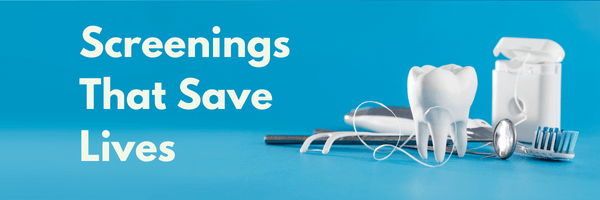
Creating a Culture of Gratitude in Your Dental Practice
Posted November 09, 2020
It’s that time of year when we all stop, reflect and take stock of the things we are thankful for. Gratitude will bring us peace today and set us right for tomorrow. Giving thanks is not only good for the individual and the team, but it’s highly beneficial to the person giving appreciation. Paying attention to what we feel grateful for puts us in a positive frame of mind, which has many other benefits. In that sense, gratitude is reciprocal.
Gratitude is also a foundational element of employee engagement, which is the number one aspect of team member retention and one we should be focused on.
Thankfulness is the beginning of gratitude. Gratitude is the completion of thankfulness. Thankfulness may consist merely of words. Gratitude is shown in acts.
Henri-Frédéric Amiel
Gratitude starts at the top
In the workplace, gratitude must start at the top and trickle down. Thankfulness is good, but gratitude is an active form of appreciation. As clinicians, we are educated and programmed to look for problems. That is the daily mindset. Something is not good. Something is always wrong. We must re-train our brains to find the good, what is working, and make that mental shift from practicing medicine to practicing “people.”
By modeling gratitude, we set the tone for our work culture to create one where gratitude is the norm. We can’t expect employees just to be grateful for a paycheck or job. That kind of mindset from leadership is what leaves team members feeling unappreciated and undervalued, and ultimately, results in consistent and costly team turnover. Creating a gratitude culture yields more content and productive teams and workplaces. Today, given the longer days and more stressful work environments, our hygiene teams feel like commodities and cogs in the machine. In a tight labor market, we can’t afford to lose team members, especially not valuable ones.
When we don’t value our dental teams, we lose
In last year’s DentalPost Salary Survey, we found the turnover risk for each dental position. The highest risk for team turnover in the next year is among dental front office workers and dental assistants. The survey indicates turnover could be higher than 30% among administrative team members and dental assistants if they find higher-paying positions.
Within the next 12 months:
- 29% of associate/employee dentists intended to apply for a new job
- 40% of responding dental assistants working in corporate dental practices and 31% in private practices said they intend to look for a new job
- 17% of RDHs are considering looking for a job
- 15% of the responding dental practice managers/administrators planned to apply for a new job
- 33% of billing specialists and general front office team members planned to apply for a new job
Feeling underpaid continues to be the top dissatisfier, year after year. Nearly one in four said time constraints, new practice owners, and new practice policies interfere with their ability to do their best work. Team members who feel undervalued don’t stick around for long.
Benefits of cultivating gratitude in our dental practices
Practicing gratitude alters the body’s biochemistry, according to Robert A Emmons, Ph.D. He is a professor of psychology at the University of California, founding editor-in-chief of The Journal of Positive Psychology, and the author of Thanks!, one of his many books on gratitude. Gratitude-based work cultures have been shown to reduce stress hormones like cortisol by as much as 23%. It decreases anxiety and stress, lowers blood pressure, improves immune function, and increases energy and sleep, all of which have implications for better performance and relationships in the workplace. He asserts that gratitude leads to increased strength in areas of the brain like the hypothalamus, which regulates stress, and the anterior cingulate cortex, which is involved in cognition and emotion regulation.
Make Dental Employees Feel Valued
Consistent gratitude on a micro level, at the individual level, and at a collective organizational level affects the everyday happiness and harmony of the office and positively impacts care and the patient experience. Saying thank you is a simple, cost-free way of giving credit where credit is due and is a good place to start. Everyone wants a positive experience at work and to feel appreciated and recognized for their efforts.
To get true value from employees, we need to make them feel valued. It’s that simple. The drive to do well stems largely from feeling acknowledged and appreciated. Per the London School of Economics, performance-related pay often does not encourage people to work harder. Gratitude can be a better motivator than money. But overall, as an industry, especially right now, we have some catching up to do where compensation is concerned.
Put Gratitude in Action
How we express our gratitude for our teams varies based on individual contributions and collective team efforts. Now is the time to be as generous as we can. Our most valuable team members– the ones who treated our business as though it was their own, going beyond and investing in it with sweat equity, of course, deserve more than just a thank you. If, as leaders, we haven’t met these team members and their ability (and willingness) to make sacrifices on behalf of our businesses with decency, respect, and generosity, then we should make that right and do so soon. There is too much at stake in losing these people.
Ways To Show Gratitude:
- Be transparent. Show them why you can’t offer them that bonus they earned this year.
- Be generous. If you are a practice that can afford to make a financial sacrifice this year, be grateful and give back. Give a bonus or a raise.
- Be creative. Get creative if you are a practice that barely keeps the doors open. Offer additional paid vacation weeks. That is deferred cash-out. Offer a retention bonus if they stay with you for an extended period. Or maybe you have a 2nd home nearby. Offer it up to your team members for a weekend. They will appreciate it and enjoy a change of scenery and a semi-paid vacation.
- Be consistent. Anyone can express gratitude once. But when we do it with frequency, consistency becomes more intentional and authentic, and a deeper connection between the giver and receiver arises.
Feeling gratitude and not expressing it is like wrapping a present and not giving it.
William Arthur Ward
As a leader, It’s not enough to feel grateful and casually say you are. Let’s generously acknowledge those who got us through the year and kept us afloat. That will allow us to reset, restore, and rebuild a better culture and workplace dynamics for a refreshed and healthier new year.
Updated October 2022.
We connect and educate more than 900,000 job seekers in the U.S. and Canada to build better places to work through teams that excel.




.png)




.png)
